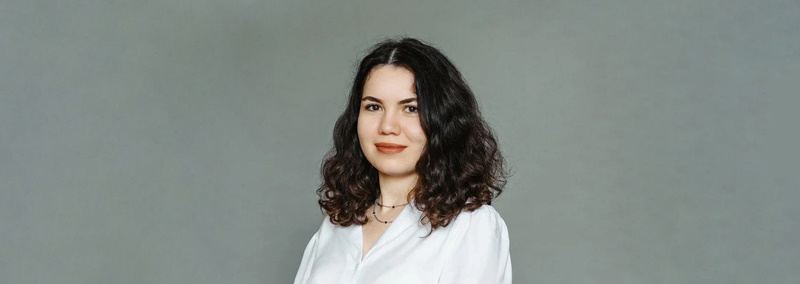

Foreign universities may not accept an application for study. 10 most common mistakes in applicants from UniPage specialists







After going through tons of information online, students begin to prepare for the most important thing — the process of admission. They choose a university and a program in the desired specialty, prepare for exams, and collect documents. It would seem that after viewing so many sites and reading so many articles, not a single thing can escape them. However, for one reason or another, failures do occur. So now we will analyze the top 10 most common mistakes of applicants, and also share some real cases of our specialists.
There are many prestigious universities and colleges in the world. Most of them are multidisciplinary, but not all of their programs are equally great. More often, a university's reputation is founded on only one or a few specialties. For example, Harvard University is renowned for its law and medical schools. Christ Church College, Oxford, to where fans of Harry Potter movies are eager to get, graduated many famous politicians. American MIT is especially popular when it comes to IT-technology, engineering, and, oddly enough, business (MIT Sloan).
There are a plethora of options, and only you can determine what you want to get from a university, course, specialty, country. But be cautious: it is important to look specifically at the subject rankings for the desired specialization, and not blindly chase the big names of universities that occupy the first positions in the QS or THE world rankings. First, these famous universities may not be the best (or even good) in your specialty. Secondly, due to high requirements, they are difficult to enter, while applying to others, lesser known institutions, can prove to be a winning strategy.
Remember, even if two universities in the same country teach the same program, this does not mean that they offer the same contents or quality. Thus, the curriculum at the Faculty of Journalism at Columbia University in New York differs significantly from the same faculty at the University of La Verne, in California. That is why it is so important to carefully study the description and curriculum of desired programs, and not be guided only by programs’ names.
Stepan Eliseev, UniPage specialist:
— Many students who are applying to Dutch universities think of the University of Amsterdam first. Indeed, it is one of the strongest universities in the country with a good position in world rankings. We were approached by an applicant who, for a long time, dreamed of studying business and economics there. Realizing all the risks of admission to this particular program (this is one of the most competitive programs in the university), we advised the client to play it safe and also apply for a related specialty in the same university, as well as in one of the universities in London. Despite her strong conviction that she should study only at the University of Amsterdam, she reluctantly agreed to consider other options. In the end, she did not manage to enter the business program due to extremely high competition, but the student still received the desired admission to her dream university in a related program thanks to a well-planned admission strategy. If we relied solely on the student's first and only wish, considering the prestige of the university, and did not analyze the different programs on offer, the admission could have been compromised.
Not considering a university’s location is a mistake that is not directly tied to admission, but can greatly affect the study process. Does this country really suit you? Is the climate of the region, where the university is located, favourable? And what about the rhythm of city life, where the campus is located? Is there a necessary infrastructure? How expensive is it to live there?
For example, some New Zealand universities are located among picturesque fields and green pastures, but those who feel at home in bustling cities will probably find such environments quite dull. Some universities in Australia are located in the tropics, but living there can be uncomfortable for those who are used to, for example, the temperate continental climate or simply do not tolerate hot weather. Athletes may suddenly find themselves missing gyms, stadiums, bike paths and other facilities, while an epicure may be frustrated by the lack of cuisine variety in a small town. Finally, high accommodation and food prices could mean that you won’t be able to sustain your living habits for the entire study period.
When it comes to admission requirements, every detail matters:
And this is just a small part of things to which students often pay little to no attention. All requirements vary from institution to institution. And when we consider the fact that applicants usually apply to several educational institutions, it is necessary to prepare several document packages and carefully study the requirements of each university. Sometimes a small detail, be it a lack of a signature, an incorrectly completed form, or a typo in the application may result in an admission refusal.
Stepan Eliseev, UniPage specialist:
— Once I had a student, who wanted our help with admission to the Stockholm School of Economics (SSE). Of course, he did not check the GPA requirements and the statistics of admission to this university, and his scores were, to put it lightly, low for what he was going for. We warned him about the unavoidable risks because for any specialist it is obvious that only excellent students with a GMAT score of more than 650 points can enter SSE. But the student insisted and, lo and behold, was rejected. Fortunately, everything turned out well. During the week we found several very strong universities with suitable programs (the student really wanted to study specific business cases with practicing professionals as teachers) in Sweden and the Netherlands. The best option turned out to be the University of Groningen. Despite all the confusion before the deadlines, the student went to the school without delays, but I strongly advise you to not repeat this mistake — in another situation, such a frivolous attitude towards actual requirements could cost you a whole year before you could try again.
Anastasia Eliseeva, UniPage specialist:
— It is difficult to fit all the stories regarding translations and notarizations into one case. The issues with them arise quite often. Here it is important to correctly interpret the requirements of universities: some universities require the translation to be certified by a notary, others need a consular certification, and some (like the USA) offer a limited list of organizations (NACES), which may perform certification. If the translation does not meet the requirements, have no doubt that you will get a rejection.
Notarization deserves a special mention. Usually, this is the task for the client: go to a translation agency that has a notary, ask to make a copy of the original + stitch it with the English translation + notarize the translation + make a TRANSLATION OF THE NOTARY'S SIGNATURE AND SEAL. The latter is necessary for the admission committee to be able to understand that it actually belongs to a notary. However, almost every second student ignores this requirement. So far there have been no rejection precedents. Either we managed to finish the translation, or if there was no time to correct this mistake, we sent such documents as is, and the selection committee accepted them. But the requirements are there for a reason. The biggest part here belongs to thе human factor. Should you come across a picky/captious person another time, you might not slip through. Isn't it better to avoid this risk beforehand?
Finally, the translation itself. Surprisingly, many students do not even read the translations of these so-called specialists. As part of our service, we check if the documents are prepared correctly, including the accuracy of the translation. You would be surprised to know how often the word "objects" is used instead of "subjects" in the transcripts, as if they are furniture, and you can also find "physical culture" in place of "physical education" . And clients are often ready to submit documents like this. If the admission committee finds such errors in the certificate, it will be impossible to predict their reaction. But, fortunately, we catch mistakes like these before this happens, and send our clients to better translation bureaus, so everything works out.

Just to be sure, students often apply to several universities and specialties at once. Of course, this increases the chances of admission. However, if you are applying for several programs from different fields of science within the same university, your candidacy may seem suspicious to the admissions committee. Even if all documents are in order, there is a possibility of rejection.
Some universities, for example in Australia, allow applying for 2 or 3 different specialties. This information must be checked on the university website or at the admissions office. But even in this case, you should be careful: it would be a gross mistake to write one motivation letter for all specialties. This might suggest that you are confused and simply cannot decide on what you want to become.
It may seem that an essay or a motivation letter is the simplest thing to do among other requirements. In reality, you might end up writing three essays in a single night, and none of them will be final, or even good. This is a fundamentally wrong approach to writing your essay. It should demonstrate your ability to analyze and think critically, each idea should be clearly described and reasoned.
There are even more requirements for a motivation letter because it is the only thing that can describe your personality, and not just indicate your GPA and exam results. Your name and aspirations are simply not enough for the admission committee. Here, real examples from your life, achievements, as well as a clear vision of your future — both academic and career — are important.
When it comes to the world's best universities, motivation letters and essays are the only things that distinguish applicants from each other. All applicants to Harvard have high SAT scores and spotless GPA in addition to a huge pile of all kinds of activities in their resume. As Syndrome said in The Incredibles: "And when everyone’s super, no one will be". Universities strive for diversity in the student body, so when you only have the cream of the crop to choose from, only letters will help to determine the quality of applicants. And to write a decent text, it will take you more than just one evening.
Veniamin Ponomarev, UniPage editor:
— John was a "golden" student. He graduated from a bachelor's program at a prestigious university, had a good GPA, and at a young age started his own business from scratch, made some mistakes on the way, but was full of ideas for upcoming startups. At the university, John became a little disappointed in his profession and decided to change the vector of his education by enrolling in a foreign university for another, but related specialty. He ended up choosing quite competitive universities, but he met all the requirements and could pass the admission process somewhat reliably.
Yet something was bothering him deep inside. It is hard to say now, whether it was fear of failure or just self-doubt. But after I received the first draft of his letter, I realized that we have "you were not admitted" bingo on our hands. One paragraph of dry text, which can be summed up with "I want to study at your university, pretty please." With such a letter, John would have had a chance at the beginning of the year, and then only thanks to an overall good profile. But two weeks before the application deadline, it was a disaster waiting to happen.
In a personal conversation, John told me: "I have absolutely no idea what to write." John’s head was empty, and his heart heavy. "Well," I replied, “imagine that you have to give a TED Talk and speak about yourself. Or, at least, the person reading your letter should be so eager to meet you that he would want to invite you for a drink." So we went to work.
Within a week the letter had grown rich with details and interesting self-reflections. I personally suggested some catchy metaphors. I believe that we managed to present John as an interesting and well-rounded person, although in a surge of self-criticism, he probably did not see himself as such. A week after the submission, we received our long-awaited replies. John was successfully admitted to all three universities, and now he just had to choose one.
The moral of this story is: the next time you decide to leave a motivation letter for last, remember John and start writing it today — there are a lot of edits to be made.
The principle of honesty and openness applies to all documents that are submitted to the university. And if applicants rarely fake grades, exam scores, or bank statements (which by the way is a legal offense), when it comes to writing samples, motivation, and recommendation letters, dishonesty is a frequent guest and, as a rule, it is easy to uncover such deception.
So, a motivation letter or essay should not be written by parents or teachers, even though they are allowed to proofread it. In case of letters of recommendation, on the contrary, it is better if they are written by teachers or employers, and not by the applicant himself. In some parts of the world, however, it is a common practice for students to write letters of recommendation themselves on behalf of teachers, which they then just sign. But even in this case, the final text must be approved by the author — the contacts of the person giving recommendation are indicated in the letter, and they may be contacted to verify the authenticity of the document.
Veniamin Ponomarev, UniPage editor:
— Quite often, during my work, I come across plagiarism. It doesn’t happen every single day, of course, but still much more often than I would like. Applicants simply underestimate the importance of essays and letters, which is why they write them with little to no effort: they simply copy a letter from the Internet, and sometimes even send us our own samples (yikes!). But universities ALWAYS check letters. In the age of the Internet, it is not that difficult for them to track down non-original texts. What do you think will happen when a university discovers that you stole someone else’s letter? Even if you have the highest GPA on the planet, a person who decides to plagiarize is dishonest and unreliable. A university that has even an ounce of self-respect will never accept such a student, be that a private or state institution.

Timing plays a large, if not key, role in admission. In order to not miss the deadlines, you could make personal academic calendars.
A simple example: if you have chosen a university in the UK, then you need to apply through the universities and colleges admission service (UCAS). The service has three deadlines: in October, January, and March. But they are valid only for Europe. For the rest of the world, the application period is from September to June. But this rule has its exceptions as well: Cambridge and Oxford have their own unique deadlines.
In addition to the actual application, we can not forget about other things:
And the list goes on.
If you are still in school or university, no matter what, do not abandon your studies: your grades in a certificate or a diploma are as important for admission as the entrance exams. Many colleges and universities require a GPA for the last year (sometimes two, three years). Top universities with early admission deadlines are asked to send an intermediate progress report, and then, upon completion of training, a final transcript. If you fail the final half of the year and do not get the required GPA, the university will withdraw the "conditional admission" offer.
If you do not speak a language well, you need to improve it to a level sufficient for studying in a particular country. Sometimes even good TOEFL scores do not mean that you will be able to overcome the language barrier without real communication experience. Before the start of training, you can take language courses or complete a preparatory program in the country where the future university is located. Singapore, for example, is famous for the quality of its higher education, but newcomers need several weeks just to get used to "Singlish" — the local variant of English.

Most universities have an admission fee that should not be forgotten. Failure to pay may result in a refusal to process your documents. Usually, the fee is 15-150 USD/EUR. To be sure, it is better to attach a payment receipt to the main package of documents.
Fati Tkhagapsoeva, UniPage specialist:
— In my practice, there was a student who, despite my numerous reminders and warnings that his application would not be considered without a registration fee, did not pay 27 USD. He started working on this issue only the evening before the deadline, to top this off he ran into some issues with international transactions. Fortunately, he was admitted to another university. But it's a shame that one of the options did not work out, because of a few euros. Note to future applicants: you need to transfer money as early as possible because the transfer can take up to 10 days in normal circumstances, or it may not work at all the first time you try due to errors in the bank.
Education systems of each country have their own distinctive peculiarities. Different countries and different universities establish their own rules for admission and documents, their entry requirements and deadlines. A period after submitting an application can be even more treacherous: at any time the admission committee can request additional documents and relevant data — and here it is important to correctly understand and timely fulfill the requirements. Without knowing possible pitfalls, you can simply fail the admission process without really knowing why, even if you meet all of the requirements.
If you are not a 100% sure that you can make it on your own and be victorious in the end, then we can offer our professional help:
Want to study at a foreign university but don't know where to start? We can help!
Our specialists will find a university, arrange your documents, fill out the applications, and stay in touch until you receive an offer.
